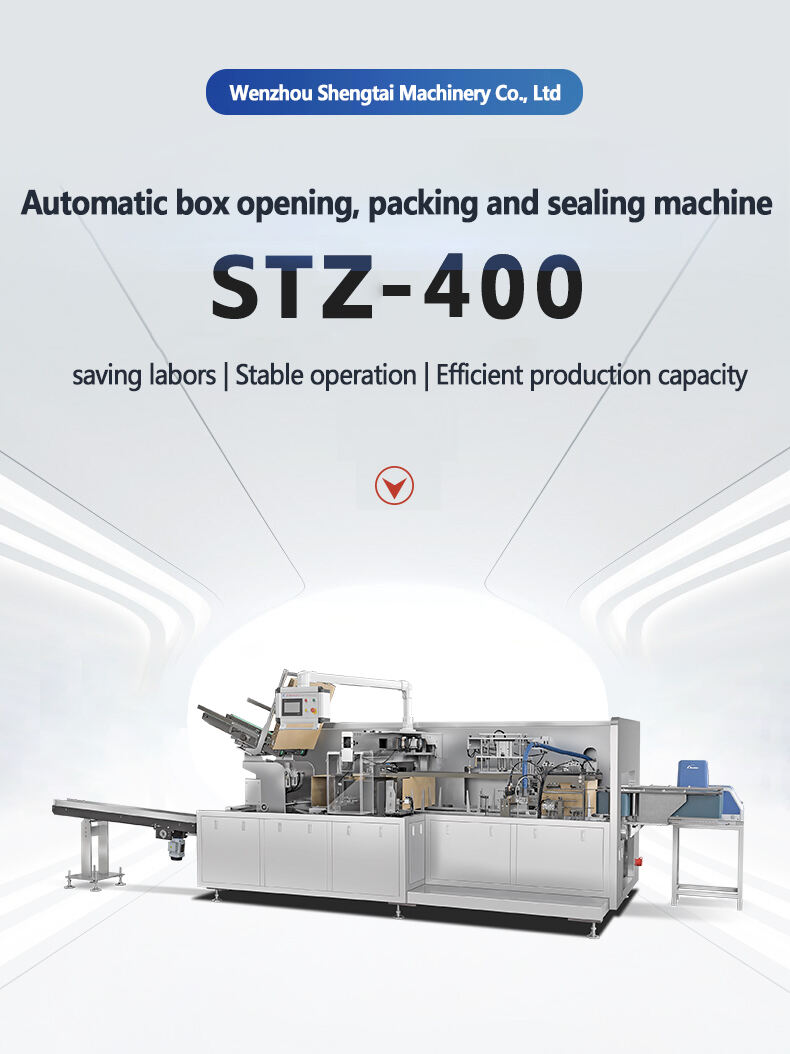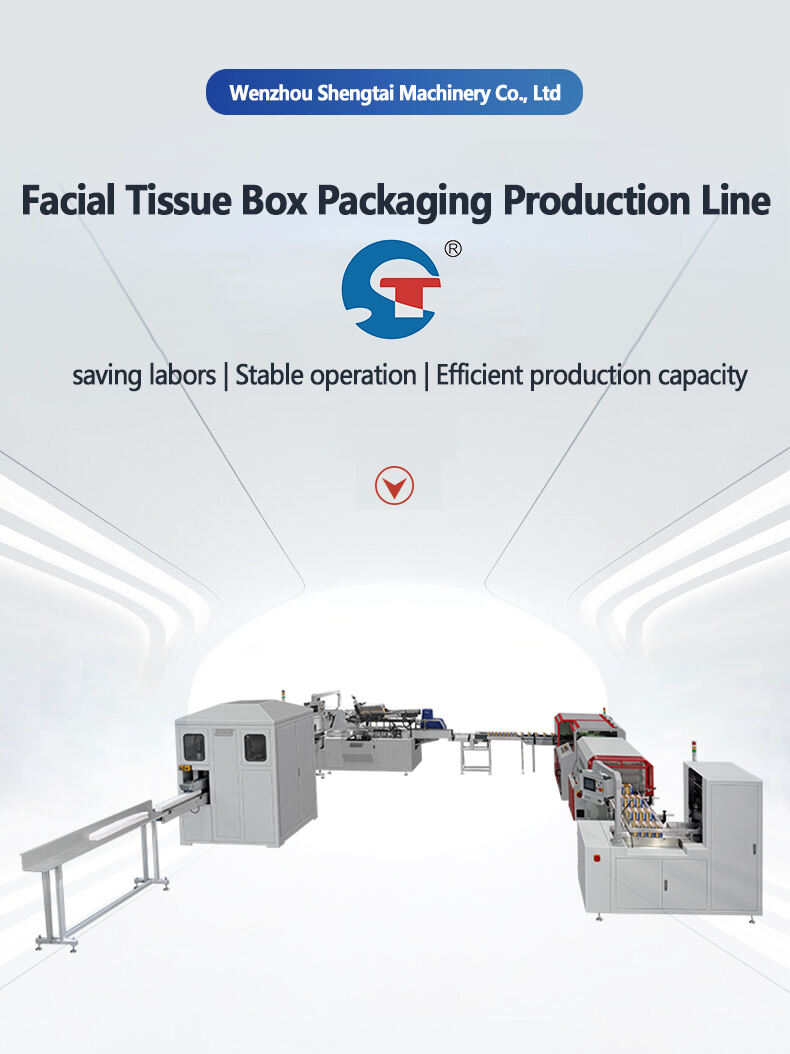Enhancing Efficiency and Precision in Modern Packaging Workflows
In today’s fast-paced manufacturing environment, businesses are constantly seeking ways to improve operational efficiency, reduce labor costs, and ensure consistent product presentation. One technology that continues to deliver on these goals is the implementation of carton packing machines across production lines. These machines are essential for automating the final stages of packaging, helping manufacturers streamline the packing of goods into cartons with minimal human intervention. Whether dealing with food products, pharmaceuticals, electronics, or consumer goods, carton packing machines offer consistent, high-speed solutions that maintain quality standards while scaling productivity. As automation becomes a defining feature of competitive manufacturing, the value of integrating carton packing machines is more significant than ever.
Improving Productivity Through Carton Packing Machines
Increasing Packing Speed Without Sacrificing Accuracy
One of the most obvious benefits of carton packing machines is their ability to significantly increase the speed of the packing process. Unlike manual operations that rely on human labor and can vary in pace and precision, carton packing machines are designed to deliver consistent, repeatable results at a much faster rate. This is especially beneficial for high-volume manufacturing operations where throughput is a top priority. By using carton packing machines, companies can achieve a continuous flow of packed products with minimal downtime, which directly translates to higher production output. At the same time, built-in sensors and automated alignment systems ensure that each product is accurately placed within its designated carton, maintaining uniformity and reducing the likelihood of damage or mispackaging.
Reducing Labor Dependency and Operational Costs
With the rising cost of labor and increasing demand for consistent output, manufacturers are turning to automation to fill the gap. Carton packing machines allow facilities to operate with fewer manual workers on the packing line, enabling companies to reallocate their workforce to more value-added tasks. This shift not only lowers labor-related costs but also reduces the risk of human error, fatigue, and injuries associated with repetitive packing activities. Over time, the investment in carton packing machines pays off through reduced overhead and improved operational efficiency. Additionally, these machines often integrate easily with other automated systems, allowing for seamless transitions between production, labeling, sealing, and palletizing stages, further optimizing the entire supply chain.

Enhancing Product Protection and Brand Presentation
Consistent Packing Quality Ensures Product Safety
Carton packing machines play a vital role in ensuring that products are securely packaged for transportation and storage. By automating the folding, loading, and sealing of cartons, these machines provide consistent packing quality that helps protect items from shifting, breakage, or exposure to contaminants. In industries like pharmaceuticals, food, and electronics, where product integrity is critical, the precision and reliability offered by carton packing machines can make a substantial difference. Consistent sealing and alignment not only reduce the risk of product damage but also help companies meet stringent regulatory standards regarding packaging and hygiene.
Supporting Brand Image Through Neat and Uniform Packaging
In addition to protecting the product, carton packing machines contribute to a polished and professional product appearance. Uniform carton folding, alignment, and sealing present a clean and consistent image to the end customer, which enhances brand perception and consumer trust. This is particularly important for premium or retail-ready products, where first impressions can influence buying decisions. Carton packing machines help ensure that each package meets exact specifications in terms of size, orientation, and labeling, which reflects well on the company and reinforces a commitment to quality. With the rise of e-commerce and direct-to-consumer shipping, well-packed products are also less likely to be returned due to damage or dissatisfaction.
Versatility and Customization Capabilities
Adaptable to Different Carton Sizes and Product Types
Carton packing machines are designed with flexibility in mind, making them suitable for a wide range of applications across different industries. Whether a company needs to pack bottles, pouches, tubes, or boxes, modern carton packing machines can be adjusted to accommodate various product sizes and shapes. This adaptability is crucial for manufacturers that offer multiple SKUs or frequently update their packaging formats. Many machines come with programmable settings that allow operators to switch between configurations quickly, reducing changeover time and increasing production agility. This level of customization ensures that the machine remains a long-term asset as business needs evolve and diversify.
Integration with Upstream and Downstream Equipment
A major advantage of carton packing machines is their ability to integrate seamlessly into broader automated production systems. These machines can be connected to upstream filling, labeling, or inspection equipment, as well as downstream case packers and palletizers. Through centralized control systems, manufacturers can monitor and adjust multiple stages of the packaging process in real-time. This integration not only improves communication between machines but also minimizes bottlenecks and enhances overall workflow. By adopting carton packing machines as part of a connected system, businesses gain greater visibility and control over their operations, leading to better coordination, fewer errors, and faster turnaround times.
Operational Reliability and Maintenance Advantages
Built for Durability and Long-Term Performance
Carton packing machines are typically constructed from robust materials such as stainless steel and are engineered to withstand demanding production environments. With features like corrosion resistance, reinforced frames, and protective enclosures, these machines are built for longevity even in harsh industrial settings. Their components are precision-made and tested to handle repeated cycles without breakdown, which translates into fewer disruptions and lower maintenance needs over time. When paired with regular preventative maintenance and proper operator training, carton packing machines can deliver years of reliable service, helping manufacturers maintain continuous output and meet tight deadlines.
Easy Maintenance and User-Friendly Operation
Despite their complexity, most modern carton packing machines are designed for ease of use and maintenance. Intuitive touchscreen interfaces, clear error alerts, and self-diagnostic tools enable operators to quickly understand the machine’s status and troubleshoot issues when they arise. Tool-less changeover features and quick-access panels make routine servicing straightforward, minimizing downtime and maximizing productivity. In many cases, manufacturers provide remote support and software updates to further streamline operations. These user-centric designs reduce the learning curve and empower operators to manage the machines confidently, which is particularly valuable in facilities with frequent shifts or limited technical staff.
Improving Sustainability and Reducing Waste
Minimizing Packaging Material Waste
Carton packing machines are programmed to use precise amounts of packaging material, which helps reduce excess waste and lowers costs. Their accuracy in folding and sealing means that cartons are filled correctly and efficiently, without overuse of adhesives, tapes, or inserts. This precision ensures that every carton is formed to optimal dimensions, eliminating material overruns and the need for rework. In addition, by reducing the number of mispacked or damaged products, these machines further cut down on waste generated throughout the production process. Over time, this contributes to a leaner, more sustainable operation that aligns with corporate and environmental goals.
Supporting Eco-Friendly Packaging Initiatives
As companies move toward more sustainable practices, carton packing machines support the use of recyclable, biodegradable, or lightweight packaging materials. These machines can be calibrated to handle environmentally friendly substrates without compromising performance. They also help reduce energy consumption by streamlining operations and minimizing manual handling. Manufacturers aiming to reduce their carbon footprint benefit from the efficiency gains and material reductions made possible by carton packing machines. This positions them well in a market where eco-conscious consumers and regulatory bodies are increasingly evaluating packaging practices as part of broader sustainability initiatives.
Scaling Business Growth and Market Responsiveness
Accelerating Time-to-Market for New Products
For companies looking to bring new products to market quickly, carton packing machines offer the speed and flexibility needed to support agile development cycles. Rapid setup, programmable formats, and high throughput enable manufacturers to test, refine, and launch new packaging configurations without major delays. This is especially valuable in competitive sectors like personal care, food and beverage, and consumer electronics, where being first to market can provide a significant advantage. By reducing the packaging timeline, carton packing machines allow businesses to respond faster to market trends and customer demands, ultimately improving their ability to innovate and compete.
Meeting Global Demand with Scalable Automation
As demand for products grows across regions and industries, scalable automation becomes essential for maintaining quality and meeting customer expectations. Carton packing machines can be configured for small, mid-sized, or large-scale production environments, giving companies the ability to scale operations without overhauling existing infrastructure. Whether expanding into new markets or increasing output to meet seasonal spikes, these machines provide a reliable foundation for growth. Their modular design also allows for future upgrades and integrations, ensuring that the equipment evolves in step with the business. In this way, carton packing machines serve not only as a tool for current efficiency but also as a strategic asset for long-term success.
FAQ
What types of products can be packed using carton packing machines?
Carton packing machines are versatile and can handle a wide variety of products, including bottles, sachets, pouches, tubes, and boxes. They are commonly used across food, pharmaceuticals, cosmetics, and consumer goods industries.
Are carton packing machines suitable for small-scale manufacturers?
Yes, many carton packing machines are designed with scalability in mind. Entry-level models are available for smaller operations, with modular options that allow manufacturers to expand capacity as their business grows.
How do carton packing machines contribute to sustainability?
These machines minimize packaging waste by using precise amounts of material and supporting recyclable substrates. They also improve energy efficiency by automating repetitive tasks, reducing labor and operational resource usage.
Can carton packing machines be integrated with other equipment?
Absolutely. Modern carton packing machines are designed for integration with upstream and downstream systems, including filling, labeling, and palletizing machines, allowing for a fully automated production line.
Table of Contents
- Enhancing Efficiency and Precision in Modern Packaging Workflows
- Improving Productivity Through Carton Packing Machines
- Enhancing Product Protection and Brand Presentation
- Versatility and Customization Capabilities
- Operational Reliability and Maintenance Advantages
- Improving Sustainability and Reducing Waste
- Scaling Business Growth and Market Responsiveness
- FAQ

